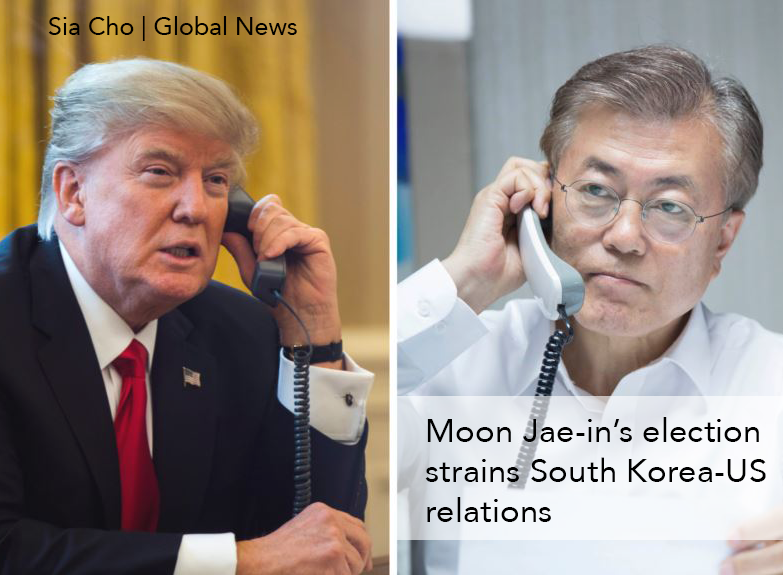After receiving more than 40 percent of the vote, liberal President Moon Jae-in was officially sworn into office on May 10. Preceded by the impeachment of former president Park Geun-hye, and amid the escalating tensions with North Korea, this new change in leadership comes at a critical time in the Korean peninsula. According to the BBC, Moon’s decisive victory not only marks an end to nearly a decade of conservative governance in the country, but also opens up a possible rift between the US and South Korea over conflicting viewpoints on North Korean relations and military action.
“Although South Korea had conservative presidents in the past nine years, Moon is a very progressive liberal who is already implementing new policies for Korea,” said Alex Kim (9), a student interested in politics. “Therefore, Korea will have to go through many changes in society, whether it is in foreign relations, trade, or politics. In doing so, Trump, a national conservative, might not easily agree to all the policies set out by the new Korean administration.”
Previously, with Moon’s campaign promising a “National Interest First” policy, his position has made it clear that South Korea is to take on a more proactive role in affairs rather than following the lead of US. Such matters include the ongoing issue of relations with North Korea, which has become increasingly strained over time. In addressing this matter, Moon seeks a conciliatory approach involving a two-track policy of engaging in dialogue and maintaining sanctions to stimulate change. By diplomatically interacting with Pyongyang, Moon hopes to ease tensions and denuclearize the Korean peninsula, ultimately bringing long-term peace and stability to the country. However, this stands in stark opposition to the US, which includes a pressure campaign against North Korea and military action as solutions to Pyongyang’s nuclear and missile threats.
“I am largely in favor of Moon Jae-in’s election,” said Jay Min (12), MUN chair. “However, I am indeed worried that it would stress South Korea-US relations—this would be because President Trump is a strongman that would not take no for an answer, while Moon would not let South Korea become the US’ puppet. Since Trump is not someone that can be reasoned with in the first place, I think maintaining a firm approach and cooperating with him may benefit Korea in the end.”
Another point of disagreement lies in the US deployment of the Terminal High-Altitude Area Defense (THAAD), which became operational on May 2. Moon, who previously criticized the anti-missile system, has called for environmental reviews and public hearings regarding its installation, arguing for a more “democratic process” throughout his campaign. In response, the US had sped up the deployment, making it harder for the next administration to reverse the process. Currently, with public support for THAAD divided and relations with China faltering, Moon has agreed to review his predecessor’s decision on the matter, putting not only the future of THAAD but also the future of the relationship between the US and South Korea in question.
“As far as relations are concerned, South Korea and the US share a strong alliance that goes back decades, which I believe is not going to change,” said Michael Silber, history teacher. “However, opposition to the THAAD missile system remains to be seen if we take Moon at his word. That might create some friction with the Trump administration, which is a bit more robust and aggressive in its military policy.”
Though the White House was quick to congratulate Moon on his win, it does not relieve the new president of any upcoming challenges. After all, the fate of the two longtime allies’ relationship seems to be in his hands.

